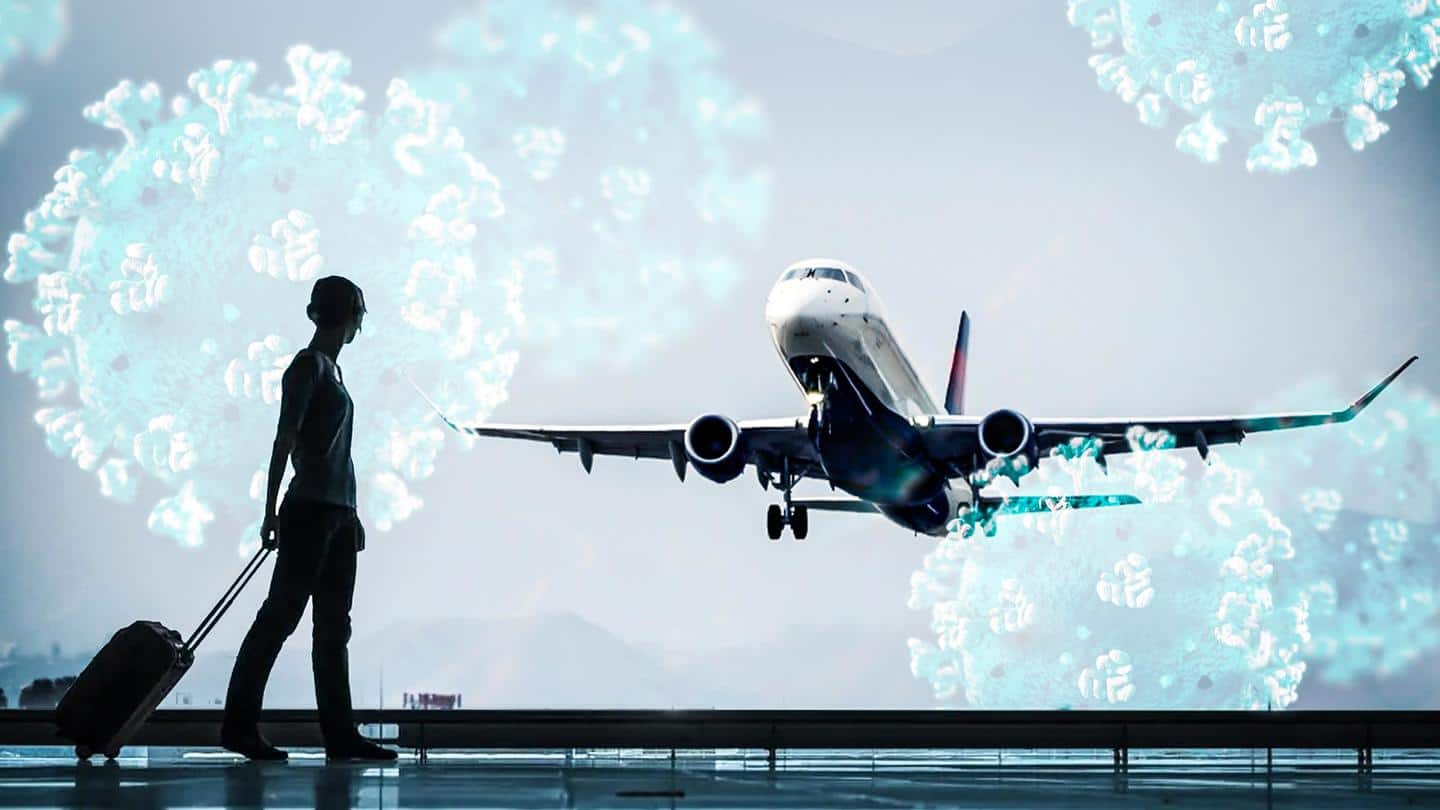
11,500 flights canceled as Omicron, storms disrupt global air travel
What's the story
Over 11,500 flights have been suspended worldwide since Friday as Omicron infections continued to rise in Europe and the United States.
Apart from the strict travel guidelines, the issue was worsened by frequent storms in the US and a COVID-affected airline crew.
Approximately 3,000 flights were canceled on Monday, while 1,725 flights were canceled on Tuesday, according to FlightAware.
Context
Why does it matter?
The suspensions and delays coincide with the spread of the Omicron variant around the world.
Omicron is the most heavily mutated version of the coronavirus SARS-CoV-2 known yet. It is considered highly contagious.
Since being discovered in southern Africa last month, it has spread to over 100 countries.
Early data suggests it spreads quickly but generates a milder infection than prior strains.
Information
Airlines running low on staff
When air travel dropped in 2020, airlines pushed employees to resign.
This year, when air traffic returned quicker than estimated, operators struggled to cope with the pace.
"During the pandemic, we have seen experienced airline personnel leave the industry," John Grant, an analyst at travel industry research firm OAG, told the Associated Press.
Even before Omicron, filling those gaps was a struggle, he noted.
Quote
'Employees sickened with COVID-19'
Henry Harteveldt, a travel industry expert at Atmosphere Research Group, said airline staffing levels are "irrelevant."
"We cannot blame the issues we are seeing now on airlines not having enough employees to work," he said.
"What we are seeing happen is the employees who were available to work have come down with COVID-19," said Harteveldt.
Airlines
Which airlines were most affected?
Delta, United, JetBlue, and American have all cited the coronavirus for staffing issues.
Flights were also grounded by European and Australian airlines due to affected crews, but the weather also played a factor.
According to Alaska Airlines, cold weather in the Pacific Northwest caused roughly 250 flight cancellations on Sunday.
Due to crews suffering from COVID-19, United canceled 115 flights out of over 4,000.
Information
CDC reduces isolation period in new guidelines
The Centers for Disease Control and Prevention (CDC) has decreased the recommended length of isolation after receiving COVID-19 in half to five days.
The five-day isolation period should be "followed by five days of wearing a mask when around others," according to the new guidelines.
Early research reveals that the Omicron strain caused milder sickness than older variants like Delta, which prompted the modification.
Comparison
Number of air passengers rose this year
Transport Security Administration data shows the number of passengers examined at TSA stations so far this holiday season has increased considerably compared to 2020.
However, the numbers are far below compared to 2019.
The Monday following New Year's Day will be one of the busiest days of the holiday season, the TSA said.
Experts say the CDC's new guidelines will help in better navigation.